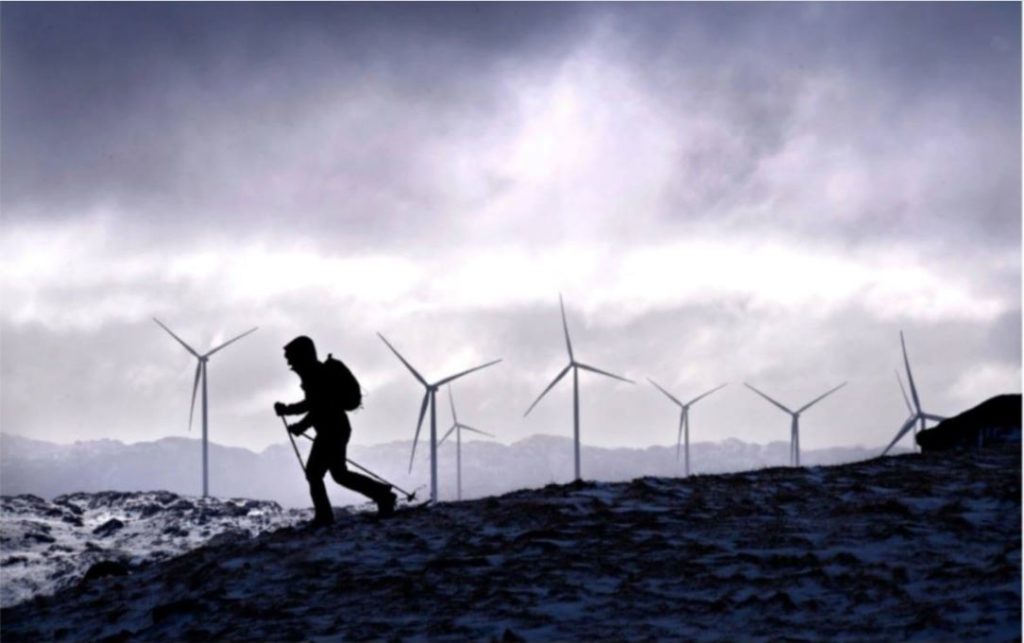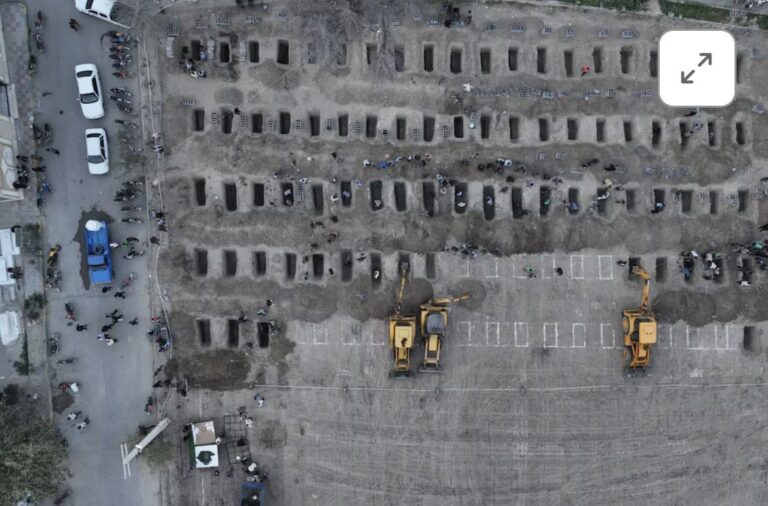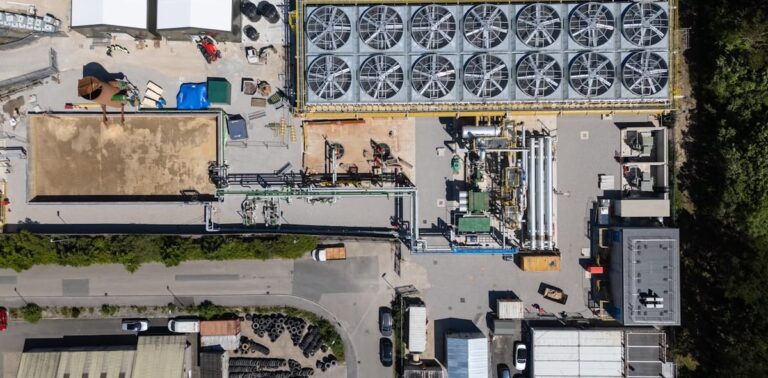Do you view energy as an ordinary commodity or an important democratic governed input factor in industrial construction and electrification?

“On the production side, we have in recent years seen a large-scale demolition of nature […]. On the consumption side, we are in a race to get land and energy for power-intensive businesses, especially in the form of data storage centers and battery factories. [… “Is this the best use of our energy?” asks Ingrid Fiskaa (SV). Photo: Pål Christensen

By Ingrid Fiskaa, a municipal board member for SV in Time,
leader Rogaland, and member of the program committee in SV
The wind power industry is ravaging people and nature, while trying to greenwash itself. Renewables are better than fossil fuels.
Yes, we need to make more renewable energy available for green industrial travel and electrification of transport. The problem is that it does not secure us through a liberalized energy market, where energy is a commodity, and where energy producers want to sell as much as possible at the highest possible price. We do not secure energy for industry if the energy is exported, increased private consumption or power-hungry data centers.
Wind power on land is a failure because it happens on the power liberals’ premises. It is enough now.
We simply need to take democratic control with our own energy. It is in the interest of industry, nature and the climate. At SV’s national meeting this weekend, this is the most important issue for me.
So yes, I’m a energy socialist.
Power is not a commodity
Two important words are missing in the wind power debate and energy policy otherwise: Democratic governance.
Our country is built on renewable energy. When we over 100 years ago learned to refine the waterfall power into electric power, it provided the basis for industrialization, prosperity and welfare. But this great societal change did not occur in the turbines and generators. It was the result of deliberate choices and political struggles.
Today we are at full speed into a new round of electrification, and at the same time an increased interest in land-based industry. There is talk from quite different quarters about a green shift, and about building the country on renewable energy. But precisely because our country is already built on renewable energy, and because we already have a world-leading industry, it is worth discussing how we managed it, and how we can manage it one more time.
In Rogaland, we are in the middle of the tug-of-war campaigns that will shape our future. Both the production and consumption of power are the source of strong commitment and fierce conflicts, and put democracy to a serious test.
On the production side, we have in recent years seen a large-scale destruction of nature, with 243 wind turbines distributed on 16 wind power plants. After Trøndelag, Rogaland is the county that is hardest hit by an irrational demolition of valuable nature. Both professional councils and local democracy have been placed in the hallway, and the reactions have not been long in coming. From a positive attitude only a few years ago, public opinion has turned into a massive no to wind power on land.
On the consumption side, we have a race to get land and power for power-intensive businesses, especially in the form of data storage centers and battery factories. Time, Bjerkreim, Tysvær and Sauda are just some of the municipalities that are currently considering different variants of such establishments. The processes have in common that financially strong actors set the premise, and that the number in workplaces is greatly exaggerated. At the same time, the amount of power needed is undercommunicated. If the data center plans at Kvernaland in Time are realized, it alone will consume five times the energy consumption of all the inhabitants of Stavanger.
Is this the best use of our energy? My answer is no. Firstly because Norway can then go from having a surplus of renewable, electric power, to lacking power. This will create pressure to build even more wind power on land. And secondly because warehouses for data storage in practice will “take” the power from far better purposes, and push up prices. Norway should instead invest more in highly productive industry, such as the world-leading process industry we have today. But this will have major problems with even a small increase in electricity prices.
I am hardly alone in answering no. The problem is that today we do not have an energy policy that makes it possible to make well-thought-out priorities. Instead, we have a first-come, first-served principle: The one who is quickest to acquire land gets the power too. And yes, they almost get the power. For the government has in its wisdom found that power-hungry data centers, even those that “produce” cryptocurrency, should be equated with the real industry. They get the same, heavily subsidized electricity tax.
Norway thus lacks an overall plan for the production and use of power. It put local democracy under strong pressure from the power industry and other developers who want to seize land. In the municipalities, the question is often reduced to a yes or no to those who knock on the door and entice with jobs. And thus there is room for conflict, as in Time: A strong popular opposition is on a collision course with the raw drive from financially strong business actors, the local administration and a barely political majority.
As long as the market prevails, therefore, the solution is not increasingly more production of renewable energy. For today, increased production, with all the natural disasters and conflicts it entails, will also not secure electricity for the purposes we prefer to prioritize. The power market is leaking like a sieve. And with the new connections to the European power market via more and more foreign cables, it will even leak more.
In addition, the current energy policy lacks legitimacy. The wind power regime in particular has become a machine that rolls over people and nature. It will take a long time to build up sufficient trust that local communities, natural values and professional advice will be taken into account. So it is only a matter of starting the clean-up work, at the same time as we stop further development of wind power on land and along the coast.
The first thing we must do then is take democratic control of the energy sector. The Energy Act must be changed so that power is not a commodity in a market, but an input factor in industrial construction and electrification. For a country that is built on precisely this formula of success, it should be quite obvious. Norway was industrialized and rich because the community controlled the power. With the same recipe, we can take us safely through a fair green transition.




47 Comments
Pingback: Why can't we just set a fixed, low price on electricity? - Bergensia
Pingback: Motvind Norge reports the management and owners of the Storheia and Roan wind power plants in Fosen - Bergensia
Pingback: Cartel cartridges
Pingback: https://indiantextilejournal.com/fespa-digital-2016/
Pingback: Can I Buy Blueberry Kush Online,
Pingback: รับจํานํารถ
Pingback: รับสั่งทำเค้ก
Pingback: การบริการคาสิโนออนไลน์ AE Sexy Baccarat
Pingback: EBET คาสิโนค่ายดังจากจีน
Pingback: Ford Everest
Pingback: go88
Pingback: จอ led ขนาดใหญ่
Pingback: เกมพนันคาสิโน skywind casino ที่น่าสนใจ
Pingback: โรงงานผลิตสายรัดพลาสติก
Pingback: have a peek at this site
Pingback: ออกแบบเสื้อยืด
Pingback: เล่นเกมกับสล็อตเว็บตรง
Pingback: northern lights casino
Pingback: stapelstenen
Pingback: Lowara distributor water pump
Pingback: ทดลองเล่น เกมสล็อต fortune rabbit
Pingback: https://fortunerabbitjogar.com/
Pingback: Briansclub
Pingback: สินค้าจีน
Pingback: ใบพัดมอเตอร์
Pingback: 1xslots argentina
Pingback: Lott9 เว็บแทงหวยออนไลน์
Pingback: zoloft vs prozac
Pingback: ที่ปรึกษา ขอ อย
Pingback: Buy Villa Phuket
Pingback: เน็ต ais
Pingback: พลาสติกปูพื้นก่อนเทคอนกรีต
Pingback: try this web-site
Pingback: 1xbet apk maroc
Pingback: โบลเวอร์ kruger
Pingback: แทงบาส NBA
Pingback: พิสตาชิโอ เพสท์
Pingback: นำเข้าพัดลม มอเตอร์
Pingback: 123bet เข้าสู่ระบบ
Pingback: oilpetrolgas.kz
Pingback: ddiyyala
Pingback: авиатор игра
Pingback: fine cut tobacco Canada
Pingback: Angthong National Marine Park
Pingback: clothing manufacturer
Pingback: คาสิโน lsm99
Pingback: ยิง sms